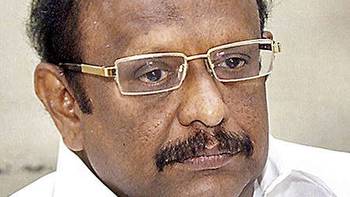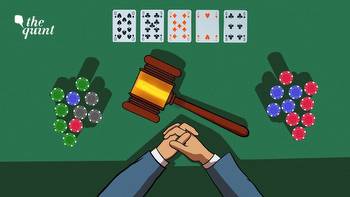Highlights: Madras HC's Judgment on TN's Online 'Gambling' Ban

Last month, the Madras High Court once again struck down the Tamil Nadu government’s attempts to ban online skill games (non-gambling games) under a larger ban on online gambling. Chief Justice Sanjay V. Gangpurwala and Justice P.D. Audikesavalu held that the state government had the power to regulate skill games, and banning them exceeded its legislative competence.
The ban on online rummy and poker, enacted earlier this year, followed rising online gaming-related suicides in the state. The state had earlier attempted to enact a similar prohibition, which was struck down by the Madras High Court in August 2021 following constitutional challenges filed by skill gaming companies. The state government went on to challenge that verdict at the Supreme Court in December 2021, although the case has moved slowly since.
This time around, skill gaming companies once again launched a legal challenge after the ban’s enactment in April, arguing that the state government had arbitrarily banned skill games, and in doing so affected their constitutional rights to practice trade and business. They added that states only have constitutional powers to regulate gambling (whether offline or online), and that Tamil Nadu had exceeded its regulatory limits by trying to ban games of skill too.
In a counter-affidavit filed earlier this year, the Tamil Nadu government was clear that it had full legislative competence to regulate online skill gaming, as betting on skill gaming (as is done in online real money skill gaming) would also constitute gambling. The government added that it had proportionately infringed on skill gaming companies’ business rights in the public interest, given the suicide and addiction cases they were allegedly engendering. Critically, the government argued that technology complicates the traditional binary between skill games (where a user’s skill wins them the game) and chance games (or gambling, where luck determines the outcome). Skill gaming companies may use bots and specifically designed algorithms to rig games in their favour, and to earn profits.
Tamil Nadu has some rights to regulate skill games: Interestingly, the Madras High Court affirmed a state government’s right to regulate games in the interests of public health. “The concern expressed by the State about [the] public health of its citizens is but natural. The State has to take care of the public health of its citizens,” the judgment observed. “The State certainly has the power to regulate online games of skill. It can control and regulate the games of skill. The State can provide for the time limit, that the game may not be played after a particular time and it would have the necessary infrastructure and expertise to take all the measures that the games would not be played within the State after a particular time. It can also regulate the age restriction and other aspects. The same would be within the competence of the State.”
Tamil Nadu has full rights to ban online gambling, but not online skill gaming: However, the High Court remained clear that state governments only have full constitutional rights to ban online gambling—and not online skill gaming. Simply banning the latter, instead of regulating them, was “in excess of its legislative competence”. To that extent, the High Court went on to read down the ban on skill games, limiting it to gambling alone:
“The definition of ‘online gambling’ under Section 2(i) of the impugned Act shall be read as restricted to ‘games of chance’ and not games involving skill. Section 2(l)(iv) [which holds that games of chance includes ‘cards, dice, wheel or such other device, which works on random or event generator’] of the impugned Act would not be entirely valid. The games of rummy and poker are games of card, but are games of skill. Section 2(l)(iv) is being read down, to mean, it excludes games of skill viz., rummy and poker.”
To that end, the schedule to the law specifically banning online rummy and poker was set aside. However, sections in the law banning online gambling and advertisements, and financial transactions related to it, were retained.
Tamil Nadu wasn’t able to prove that online poker and rummy are significantly different from offline rummy: The Madras High Court remained unconvinced of the Tamil Nadu government’s argument that online rummy and poker games can be rigged to the platform’s advantage, whether through bots or algorithmic design, and constitute gambling. In doing so, it reminded the government that courts have consistently held rummy and poker to be games of skill, and that it had failed to provide evidence to suggest that their online versions should be considered otherwise:
“There is nothing on record to substantiate the contention of the State that the dealer (software) knows all the cards all the time, including which card is going to be dealt with, or that the dealer (software) knows all the cards in the hands of each player or that the dealer (software) can change the unopened cards. The said propositions, on behalf of the State, are merely on surmise. We can understand that the game is played online and the State could not gather authentic evidences about bots being used or that the software knows all the cards in the hands of each player, so also the unopened cards or the software could change the unopened cards. In the absence thereof, it will be too far fetched only on the basis of the assumptions by the State to conclude that the game of rummy, played online, partakes the character of game of chance and is distinctly different than the one played offline…Of course, in an isolated case, if it is noticed by the State that the petitioners or any other online games servers, online games providers are using bots or have indulged in any illegal activity, it can take action against it. However, to dub online games of rummy and poker as games of chance would be against the dictum of the Apex Court and the various High Courts.”
Similar skills required to play both online and offline games of skill: Relying on other judgments, the Madras High Court further observed:
“In online games of rummy and poker also, the same brain activity would be involved as required for offline games of rummy and poker. Online fantasy games are now held to be games of skill and not games of chance by the High Court of Punjab and Haryana in the case of Varun Gumber vs. Union Territory of Chandigarh & Ors. The High Court of Rajasthan, in the case of Chandresh Sankhla vs. State of Rajasthan observed that in Dream 11, there is no element of betting or gambling as it is a game of skill. The High Court of Bombay has also reiterated the same in the case of Gurdeep Singh Sachar vs. Union of India.”
Concerns with Chandru Committee’s report: The ban on online gambling (and skill games) came after a government-constituted expert committee’s report on the effects of these games on young people. Led by former Madras High Court judge K. Chandru, the committee’s report was not made public (nor were our RTI requests to the Tamil Nadu government to disclose the report accepted).
The Madras High Court separately questioned how the report investigated gaming ‘harms’, and who it interviewed, raising concerns over the ‘evidence’ collected to justify the ban. “What has been done by the State and the Committee, submitting the report, is only interviewing school teachers,” the judgment observed. “Moreover, the school teachers would be supervising students below 18 years of age. Students below the age of 18 years are prohibited and not permitted to play online games in the instant case.”
Keeping up with Tamil Nadu’s gambling ban: Our guide comprehensively covers Tamil Nadu’s attempts at regulating online gambling. Here are some of our top reads:
- February 2021: A law banning wagering and betting in “cyberspace” is gazetted. [PDF]
- August 2021: The Madras High Court strikes down the gambling ban on constitutional grounds. [Read]
- December 2021: The Tamil Nadu government files a Supreme Court challenge against the Madras High Court’s decision to strike down the gambling law. [Read]
- June 2022: Amidst rising gambling-related suicides in the state, Tamil Nadu’s DMK government led by Chief Minister M.K. Stalin announces the formation of an expert committee to once again draft an emergency law on online gambling. [Read]
- We document how a lack of clear online gambling and gaming laws harms everyday Indians, whether in Tamil Nadu or otherwise. [Read]
- September 2022: Tamil Nadu cabinet approves ordinance banning online gambling. [Read]
- November 2022: The gambling ordinance expires in the absence of the Governor’s assent. [Read]
- February 2023: As the Governor continues to withhold his assent, Tamil Nadu MPs claim in Parliament that over 40 youths have died in Tamil Nadu during the stalemate. [Read]
- March 2023: Tamil Nadu’s Governor finally returns the ordinance to the state government, citing multiple concerns, including the state’s “legislative competence” to draft it. [Read]
- April 2023: After the Tamil Nadu Assembly passes the bill for the second time, Governor R.N. Ravi assents to it. The move came after a motion was passed against him the same day. [Read]
- April 2023: The law comes into effect from April 21st—skill-based gaming companies begin restricting their poker and rummy games in the state. [Read]
- April 2023: Now that the law is notified, the All India Gaming Federation and three gaming companies file a constitutional challenge against the ban at the Madras HC. [Read]
- June 2023: In its counter-affidavit, the Tamil Nadu government argues that it has the legislative competence to ban online ‘gambling’. [Read]
STAY ON TOP OF TECH NEWS: Our daily newsletter with the top story of the day from MediaNama, delivered to your inbox before 9 AM. Click here




































